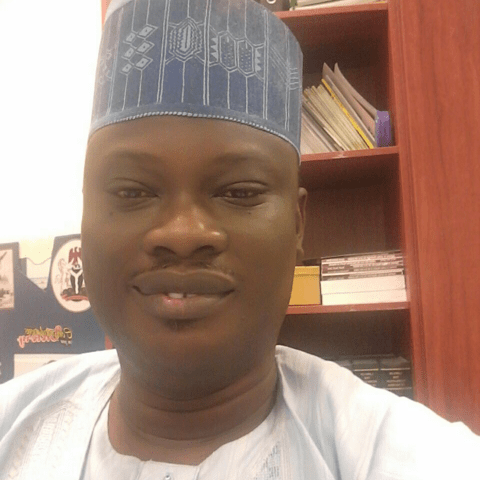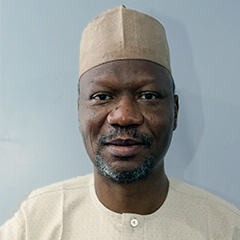
After many years of consistent advocacy by individuals, critical stakeholders and other interest groups both within and outside the Nigerian academia, the process of restoring the subject of history at basic education levels may reach advanced stages. Following its removal in the 2009/2010 academic session amidst criticisms at the time, the decision of the current administration of President Muhammadu Buhari to restore history to basic education curriculum has equally received applause and commendations from concerned Nigerians.
The removal of the subject from basic education curriculum has been blamed for the socio-political mis-education of an otherwise significant proportion of Nigeria’s educated younger demography that didn’t have the privilege of studying the history of their country in order to be acquainted with how the past resulted into the present and how the present will shape the future. In addition to what many among the older generation of Nigerians consider a low level of pan-African values and poor knowledge of the basics of Nigeria’s pre-colonial, post-colonial and is tortuous journey to nationhood alternating between military and civil democratic rule in the 62 years since its independence among the younger generation of Nigerians, the removal of history from basic education curriculum has also been held as partly responsible for the low level of engagements in the political process among younger generation of Nigerians.
The process of restoring history as a stand-alone subject of study at the basic education level, which began in 2016 with the announcement by the minister of education, Mallam Adamu Adamu of the approval of the National Council on Education at its 61st ministerial session has reached advanced stages with recruitment of history teachers. At an event to flag off the return of history to Nigerian basic schools in Abuja on Thursday November 24th 2022, the minister of state for education, Goodluck Opiah disclosed that the Universal Basic Education Commission [UBEC] has been charged with the responsibility of recruiting a total of 3,700 teachers to be trained and deployed into classrooms across the country.
While pointing out in his remarks at the flagging off ceremony on the need to exploit the lost original African tradition of storytelling to teach morals, values and folklore, Minister Opiah expressed optimism that the return of history at the basic education level will help the next generation discover the historical development of their fatherland, teach them on how to avoid repetition of past mistakes and failures. And in conveying the policy position of the federal government on the subject matter, the minister had this to say, “History underlies the approach and methods deployed in addressing our current day challenges, especially with insecurity. We would naturally use historical narratives with the application of experience resulting from causes of events to solutions by using home grown solutions.
‘’This is ordinarily centred on our ethnic heritage, cultural host, and multicultural influences within our peculiar communities which derive from our common origins. Such an entrenched teaching and learning provide the opportunity for appreciating antecedents that extol the great deeds of our past heroes, their sacrifices and contributions to creating the foundation for an indivisible nation. It is in doing this that we remember and celebrate monumental achievements, memorable dates, events, names, and every event of historical significance.”
Along with literature and geography, history forms the foundation of education without which a scientist, public administrator and economist cannot be said to be truly educated. History is fundamental to the philosophy, values and aspiration of any nation as its proper understanding provides a context for strategic geo-political positioning in a fiercely competitive for resources world. However, important as the study of history and commendable as its re-introduction are to Nigeria’s quest for national redemption, the content and context of the re-introduced subject that will be taught the next generation of Nigerians is even more important than its mere symbolism, as was the case in the past.
And to safe guard the future of the history of Nigeria in Nigeria, policy makers in the education sector will do well to reflect on a number of pertinent questions as a wrong historical narrative is worse than no history at all. What is the philosophy behind the re-introduction of history at basic education level in Nigeria? What are the aims and objectives? And to this end, what manner of history will Nigerian children be learning at basic education level? What are the needed inputs to ensure expected outputs and outcomes? And what are the available institutional support frameworks to ensure sustainability of outcomes in the long term?
The guiding philosophy for the re-introduction of history at the basic education level in country like Nigeria that has experienced arrested development since its independence in 1960 should be the imperative of NATIONAL UNITY as a fundamental condition upon which socio-economic development are precedent. But to ensure national unity, there has to be social cohesion amongst the constituent peoples of Nigeria enough to allow for seamless national integration under a convivial atmosphere of social justice, equity, fairness and peaceful coexistence. To achieve the much needed national unity in Nigeria it has become imperative to retell the history of Nigeria with a central theme of the oneness of the Nigerian people away from the entrenched historical narrative that has overemphasized the exaggerated difference amongst the constituent peoples of Nigeria.
According to Samora Machel, ‘’for a nation to rise the tribe must die’’; the aims and objectives of the re-introduction of history at the basic education level should be NATION BUILDING through the process of Nigerianisation and detribalization of Nigerian history. And to achieve these important aims and objectives, the new history curriculum at basic education should be reviewed and brought in conformity with deliberate and purposeful efforts at nation building. No longer should a Nigerian be though that the constituent peoples of Nigeria had nothing in common for several millennia until the British colonial amalgamation as recently as 1914 but should be thought that long before 1914 the people of Nigeria had so much in common as clearly evidenced in similarities in culture, tradition and languages.
A new historical narrative that no longer emphasizes the differences between the Igbo, Yoruba and Hausa as well as other ethnic or linguistic groups in Nigeria but teaches the oneness of all ethnic nationalities by emphasizing the obvious but unacknowledged commonalities in pre-colonial history, traditional values, ancestral interrelationships and shared geography. The new history curriculum should teach the Nigerian child is a mono racial Black African nation and its constituent peoples as part of a common cultural commonwealth. And that the Igbo, Yoruba, Hausa and other ethnic nationalities are nothing more than linguistic groups speaking a plurality of a common ancestral super language with their geo-ethnic locations a function of members of the same family living in different parts of the family compound.
The necessary inputs required to achieve expected outputs and outcomes will be a robust history that is rich in material evidence of the oneness of the Nigerian people in order to instil the much needed sense of Nigerianness in the future generation of Nigeria. The expected output from the reintroduction of history at basic education levels is to have a new generation of pan Nigerian citizens that are detribalized with a strong belief in the oneness of the Nigerian people enough to effect social cohesion and national unity that is nurtured with the principles of social justice, equity, fairness and peaceful coexistence in the larger society as overall outcomes. Until a people consider themselves as one irrespective of ethnic and religious pluralities, they cannot desire of others what they desire for themselves and will not do unto others what they want others to do unto them [social justice].
But to sustain these efforts at nation building through the re-introduction of history in Nigerian schools, the political leadership at all levels of government will have to reflect the new paradigm through their appointments, policies, programmes and the general conduct of governance in a manner that re-enforces the philosophy of the oneness of the Nigerian people by practicing what is being preached to the Nigerian children in their history classes. To further ensure the sustainability of the expected outcomes of a socially cohesive and united nation of Nigeria where social justice, equity, fairness and peace reigns, the federal government should reposition the National Orientation Agency [NOA] to undertake the task of mass re-orientation of the Nigerian people. And to achieve this, the NOA should go into a strategic partnership with Nigeria’s movie industry [Nollywood] to synthesis entertainment materials that subtly deepen the messaging of the oneness of the Nigerian people, the wisdom and benefit of national unity and the folly of tribalism and disunity.



